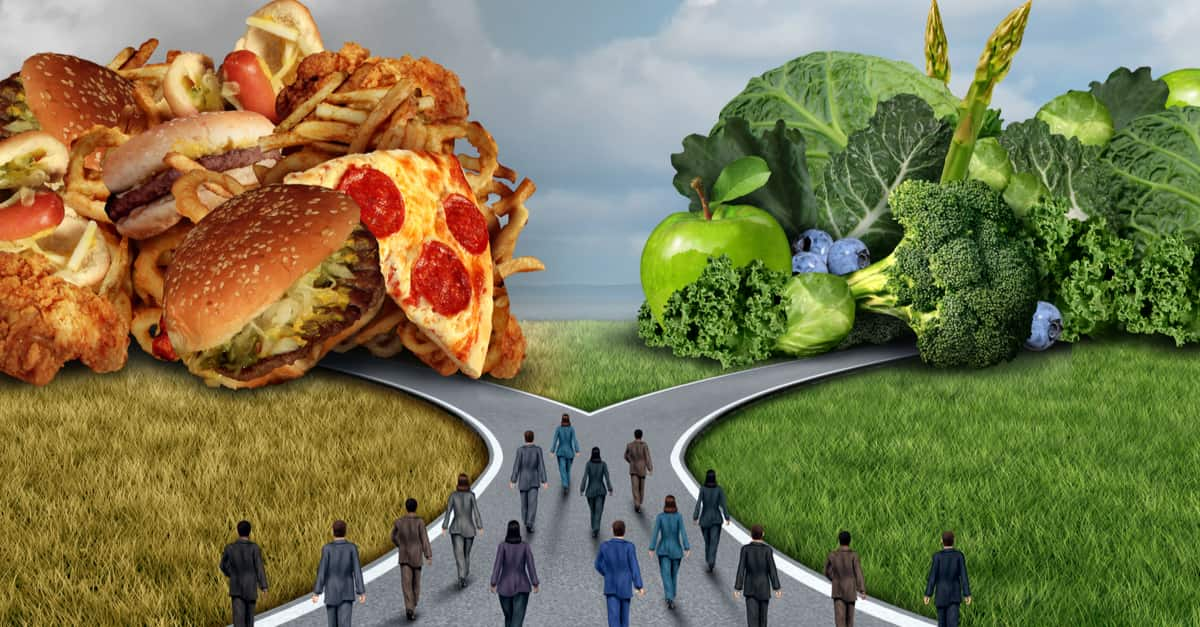Sometimes, when we are enjoying a particular food or go through a phase of returning to the same food over and over again, we say that we are ‘totally addicted to it.’ Have you ever been totally addicted to a new taste? Or an old, comforting food? Have you ever felt like you genuinely cannot resist a dessert or that you have just got to have a certain snack? Maybe you have even gone out late at night to find the food you crave or gone to extreme lengths to stock up on something tasty that you just cannot do without. Are we truly addicted to these foods? What is the difference in greed and an addiction to food?
Food – Is Addiction Possible?
Yes. It is totally possible to have an addiction to food. However, this might not work in the way that you think of addiction working. An addiction to food is not an addiction to any substance within that food. If you crave potato chips, it is not because your brain has become reliant on a particular chemical compound that is found in those potato chips. So it isn’t quite like an addiction to drugs or tobacco or alcohol, where there are stimulating chemicals that the body becomes dependent on. However, addictions to those habit-forming chemicals are not the whole story of addiction. People become addicted to the ‘reward’ that they get when they consume those substances, just as much as they become reliant on the actual substance itself. When we do something rewarding, the brain gives us a lovely rush of happy hormones, including dopamine. This makes us feel great, and we want to replicate that feeling.
Can food cause this? Yes! A satisfying meal does give us a buzz of dopamine. The brain is wired this way to make sure we keep on eating. It is all part of our survival instinct. The same chemicals that are involved in drug addiction are involved in food addiction. The problem is that the foods that typically give us this rush of feel-good brain chemicals are those that actually harm our bodies; high in fat, processed foods packed with sugar are the worst culprits. This can lead to obesity and many health problems.
Food addiction is a complex issue. There are a number of reasons why we might feel addicted to certain foods. Essentially these are all reasons why we feel a sense of reward when we eat, and that reward may be emotional as well as physical.
How to Overcome Addiction to Food
Seek Medical Advice
If you think that you might have an addiction to food and it is having a negative impact on your life, then speak to a doctor or other health care provider. This is a health issue. It is not simply a lifestyle choice; there is help available. Talking therapy can help you change the way you feel and the way you think about food so that you can change your behavior. Cognitive Behavioral Therapy is a great way to deal with this particular issue.
Don’t Eat your Feelings.

We all have our comfort foods. These are often meals that we enjoyed as a child or that remind us of home. For lots of people, their go-to comfort food is a treat they enjoyed when they were very young or a meal prepared in precisely the way that a parent or other carer used to make. People often reminisce about school meals that they ate during their early days at school, and often these memories view these lunches through rose-tinted glasses! Why are these foods called comfort foods? Well, simply because they are comforting. In this case, it is not the actual food we crave – it is not the actual addiction to food – it is the sense of warmth, safety, and belonging that they give us. They are the dinner-time equivalent of a big cozy blanket. Identifying your comfort foods means recognizing when you are craving food and seeing it for what it really is – a craving for these safe, happy feelings. This is the root of emotional eating.
Replace Unhealthy Habits

When a person is used to being able to quickly access a lovely rush of happy brain chemicals, they will naturally struggle if that is then taken away from them. This will mean that they crave the feeling, and therefore the food that caused it. Instead of simply locking away all the temptations and relying on willpower to get through the challenging moments, it helps if you can replace the source of those happy feelings with something else. One of the best is exercise. Exercise also increases the flow of dopamine and other mood-boosting chemicals. And in fact, the effect may last longer. As well as this, the exercise works with your body to undo any of the negative effects of overeating. It can help you to lose weight, boost fitness, and improve your overall health. This provides a much-needed boost to your confidence and reaffirms your commitment to leave an addiction to food behind and move forward in a more positive way.
Support Networks Work
If you have people who care about you, whether they are doctors, friends, family, or a therapist, then use their support to help you get past the addiction to food. Be specific about how they can help you manage your addiction to food- can they give you advice, accompany you to appointments or simply walk with you? Maybe they are interested in eating together and planning meals for health. Food addiction is not well understood, and many people do not realize that it actually has a chemical root in the brain and can be a serious issue. (for more information on this, see this study). Helping them understand that and reaching out to the people around you can dramatically affect how you recover from the problem.
